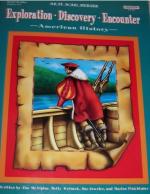|
This section contains 464 words (approx. 2 pages at 300 words per page) |

|
The rivalry among the European nations sometimes meant new opportunities for explorers in search of a patron. In many ways, several explorers—such as Giovanni da Verrazzano, Christopher Columbus, Ferdinand Magellan, and John Cabot—served as "free agents," accepting royal support where it was forthcoming, regardless of whether it was from their native land. Thus, although their discoveries and land claims became the property of the country under whose flag they sailed, the explorers themselves paid great attention to each other and tried to find as much information as possible about routes taken, navigation techniques, and discoveries made. Greatly facilitating this exchange of knowledge was the development of printing, which occurred around 1450. Although books were by no means the available and inexpensive commodity they are today, with the advent of printing, merchants, nobility, and monarchs were able to obtain more...
|
This section contains 464 words (approx. 2 pages at 300 words per page) |

|




